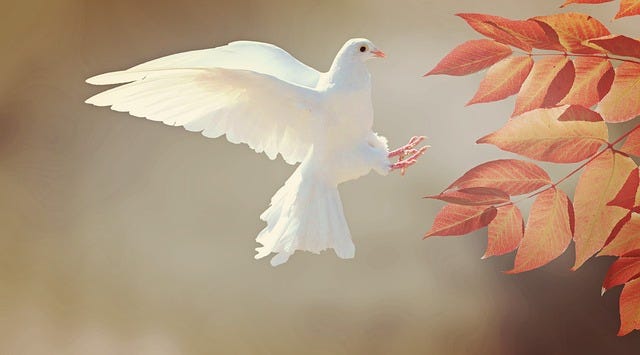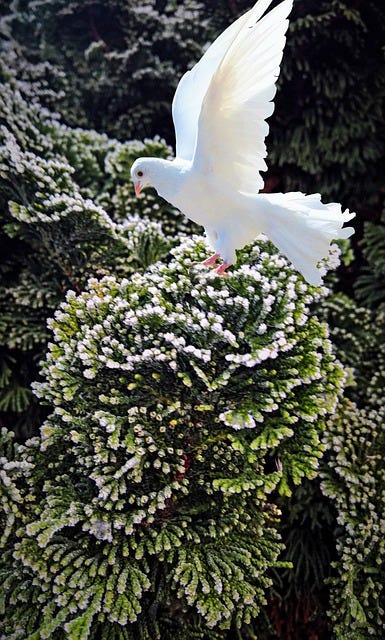Serenity and Symbolism in Hilda Conkling's "Wood Dove"
A poem of peace and serenity which we need in this tumultuous world.
Serenity and Symbolism in Hilda Conkling's "Wood Dove"
Wood Dove
by Hilda Conkling
When morn in breaking
When the sun is rising over
dark, blue hills,
When mists go by
I hear a voice say
Coo . . . coo . . .
It is Mistress Wood Dove
Hidden and alone,
Glad of morning.
I call,
She answers:
Morning is sweeter
For her voice.
“Wood Dove” is one of those poems by Hilda Conkling that combines the quiet, intimate mood of the voice of the poem with nature, a wood dove. It comes bright in a peaceful dawn when the rising sun and clearing of mists over steep blue hills announce, and one might almost say, the beginning of the day. Serenity fills the air, creating a sense of peace and stillness.
The poem delves into the peace and bliss that accompany the early morning. The speaker is not observing, but noting all these natural elements that bring comfort through their predictability and beauty, inviting the reader to share in this conscious appreciation.
The soft sound of the wood dove brings a deep, intimate experience to the scene. The dove is portrayed as “Mistress Wood Dove,” evoking a note of respect and familiarity with the individual. She is there in secret, in solitude, yet the speaker senses her presence.
This interaction is significant. The speaker calls, and the dove answers. It’s a mutual recognition and appreciation. The poem presents the idea that the dove’s call sweetens the mornings for the speaker, and the speaker’s presence enriches the dove’s experience of the new day.
In Conkling’s poem, nature is not just a backdrop, but a fragile yet unnoticed beauty. The wood dove, often overlooked, symbolizes the gentle beauty of nature for attentive observers. The poem emphasizes small, quiet moments and their impact on well-being and connection, encouraging self-reflection.
The structure is simple, reflecting the scene’s simplicity. It is simple in its nature, for it evokes such deep emotional resonance as one reflects on one’s own experience of nature and the peace it may bring—however fleeting. These moments are valuable to the poem, even though they are fleeting, offering suggestions of harmony and contentment, characteristics of pastoral poetry.
Symbolic Meaning of a Dove:
The dove is an ancient symbol with many connotations, varying according to culture and context. Doves are seen as icons of peace, love, and purity. A dove is commonly associated with peace. The identification becomes most widespread during war and conflict when a dove carrying an olive branch symbolizes reconciliation and the cessation of hostilities.
Doves are linked to love and faithfulness. This association arises from the fact that doves are monogamous and mate for life. That is why they often appear in artistic works or literature as a symbol of romantic love or relationships. Their white feathers bring the purity and innocence of these creatures to their association.






Derek, you are a wealthy man